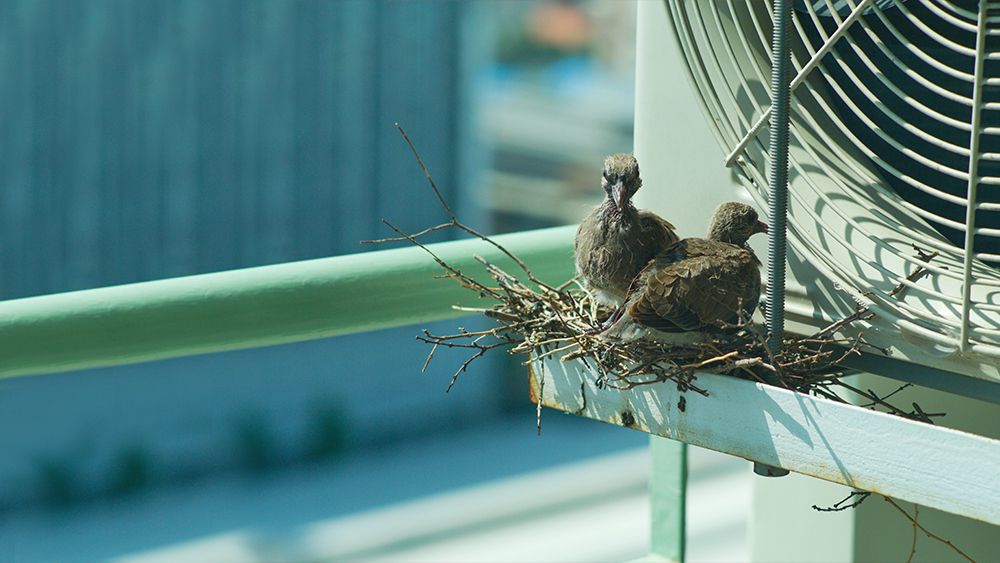You can keep birds away from your window air conditioner by taking a few simple precautions. First, make sure the unit is securely installed and that there are no gaps where birds could potentially get inside. Second, keep the area around the unit clean and free of debris that birds could use to build nests.
Finally, consider installing a wire mesh screen over the intake and exhaust vents to deter birds from getting close to the unit. By taking these steps, you can help ensure that your air conditioner stays running smoothly and that birds stay out of harm’s way.

Credit: www.cielowigle.com
How Do I Protect My Window Air Conditioner from Pigeons?
If you have a window air conditioner, chances are you’ve also had to deal with pigeons at some point. Pigeons love to roost on top of air conditioners, and their droppings can damage the unit and create an unsightly mess. There are several things you can do to deter pigeons from roosting on your air conditioner.
Cover the unit: One of the simplest ways to deter pigeons is to cover the air conditioner when it’s not in use. You can buy a special cover made for window air conditioners, or just use a sheet or tarp. Be sure to secure the cover so that it doesn’t blow off in windy weather.
Install spikes: Another option is to install spikes on top of the air conditioner. This will make it uncomfortable for pigeons to land, and they’ll eventually give up and find somewhere else to roost. You can buy ready-made bird spikes at most hardware stores, or make your own out of wire or PVC pipe.
Use ultrasonic devices: Ultrasonic devices emit high-frequency sound waves that are imperceptible to humans but very annoying to birds. These devices can be effective at deterring pigeons, but they must be properly positioned in order for them to work well. Whatever method you choose, be sure to take action before the pigeon problem gets out of hand.
A little prevention will go a long way in keeping your air conditioner free from these pesky birds!
How Do You Clean Bird Poop off an Air Conditioner?
Assuming you mean cleaning bird poop off of an AC unit that is already installed:
First, put on some gloves to protect your hands. Next, use a hose to spray down the entire unit, paying special attention to the areas where birds tend to perch.
If the poop is fresh and wet, it should come right off. If it’s older and more dried on, you may need to scrub a little bit with a brush or cloth. Once you’ve removed as much of the poop as possible, rinse the unit again with clean water.
Do Birds Like Air Conditioning?
No, birds do not like air conditioning. In fact, they can find it quite detrimental to their health. Air conditioning units blow out dry, cool air which can dehydrate birds and strip away their natural oils and feathers.
This can lead to respiratory problems, skin irritation and even death. If you must use an air conditioner, make sure to place it where the bird cannot get near it or cover it with a cloth so that the direct blast of air does not hit the bird.